Efficient Home Power: Unleashing Energy Excellence
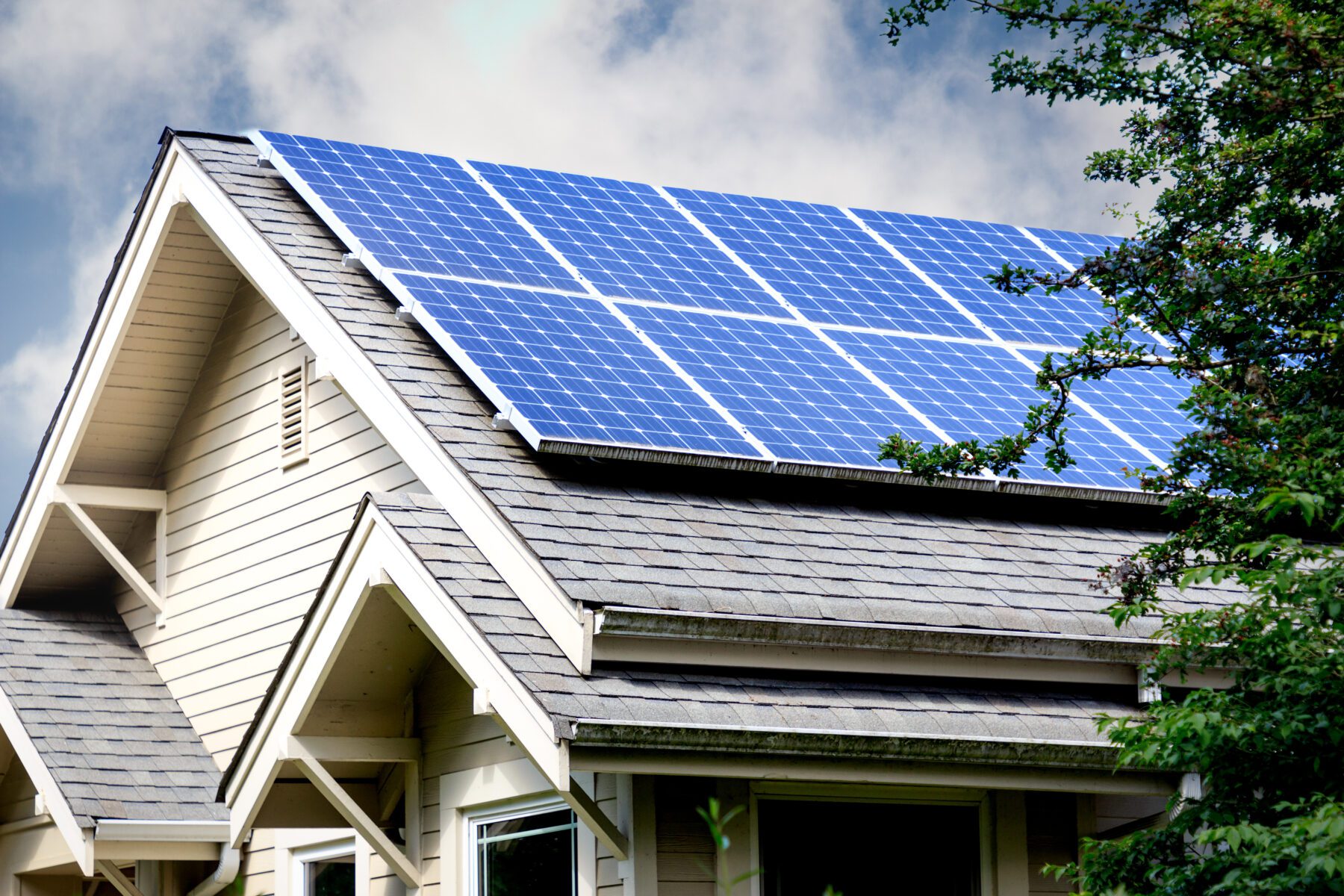
Unlocking Energy Excellence: The Path to Efficient Home Power
In the pursuit of a sustainable and cost-effective lifestyle, efficient home power emerges as a transformative solution. This article explores the various facets of efficient home power, from renewable energy sources to smart technologies, illustrating how homeowners can unleash energy excellence within their living spaces.
Harnessing Renewable Energy
Efficient home power starts with harnessing renewable energy sources, with solar and wind energy leading the way. Solar panels on rooftops and small wind turbines provide a clean and sustainable alternative to traditional grid-based electricity. This shift not only reduces the environmental impact but also offers long-term cost savings.
Smart Technologies for Optimal Efficiency
Integrating smart technologies into your home is a key component of achieving efficient power consumption. Smart thermostats, lighting systems, and appliances allow for automated control and optimization, ensuring that energy is used judiciously. This not only enhances efficiency but also contributes to a more convenient and comfortable living environment.
Energy Storage Solutions
Efficient home power extends beyond just generation to storage. Energy storage solutions, such as advanced batteries, enable homeowners to store excess energy generated during peak times for use during periods of low energy production. This ensures a consistent power supply, even when renewable sources are not actively producing electricity.
Financial Advantages of Efficiency
Investing in efficient home power translates to significant financial benefits. While there may be upfront costs associated with adopting renewable energy and smart technologies, the long-term savings on energy bills make it a wise investment. Additionally, many governments offer incentives and rebates to further offset the initial expenses.
Environmental Stewardship through Efficiency
Reducing the carbon footprint is a central theme of efficient home power. By relying on clean and renewable energy sources, homeowners contribute to a healthier environment. The adoption of energy-efficient technologies further minimizes waste and environmental impact, aligning with global efforts to combat climate change.
Enhancing Home Value
Efficient home power isn’t just about savings—it’s an investment that adds value to your property. In a world increasingly focused on sustainability, homes equipped with renewable energy sources and energy-efficient technologies stand out in the real estate market. This enhances property value and attracts environmentally conscious buyers.
Technological Innovations Driving Efficiency
The landscape of efficient home power is continually evolving with technological advancements. From more efficient solar panels to sophisticated home energy management systems, staying abreast of innovations allows homeowners to consistently upgrade their systems, optimizing efficiency and staying ahead of the curve.
Community Impact of Energy Efficiency
Efficient home power goes beyond individual homes; it contributes to a broader community impact. As more homeowners adopt clean energy practices and energy-efficient technologies, the collective reduction in energy consumption positively influences the community’s environmental sustainability. It sets a precedent for responsible living and encourages others to follow suit.
Navigating the Transition to Efficient Home Power
Transitioning to efficient home power may seem like a daunting task, but resources and support are readily available. Understanding your energy needs, evaluating suitable technologies, and seeking professional guidance streamline the process. With the right approach, homeowners can smoothly navigate the transition to a more energy-efficient home.
Embrace Efficient Home Power Today
Ready to embrace efficient home power? Learn more about the possibilities and benefits by visiting Efficient Home Power. Unleash energy excellence in your home, foster sustainability, and enjoy the advantages of a more efficient and cost-effective lifestyle.
In conclusion, efficient home power is more than a trend—it’s a necessity for a sustainable future. From harnessing renewable energy to incorporating smart technologies, each step contributes to a more efficient and responsible way of living. By embracing these practices, homeowners not only enhance their quality of life but also play a vital role in building a greener and more sustainable world.
Maximizing Home Power Efficiency for Sustainable Living
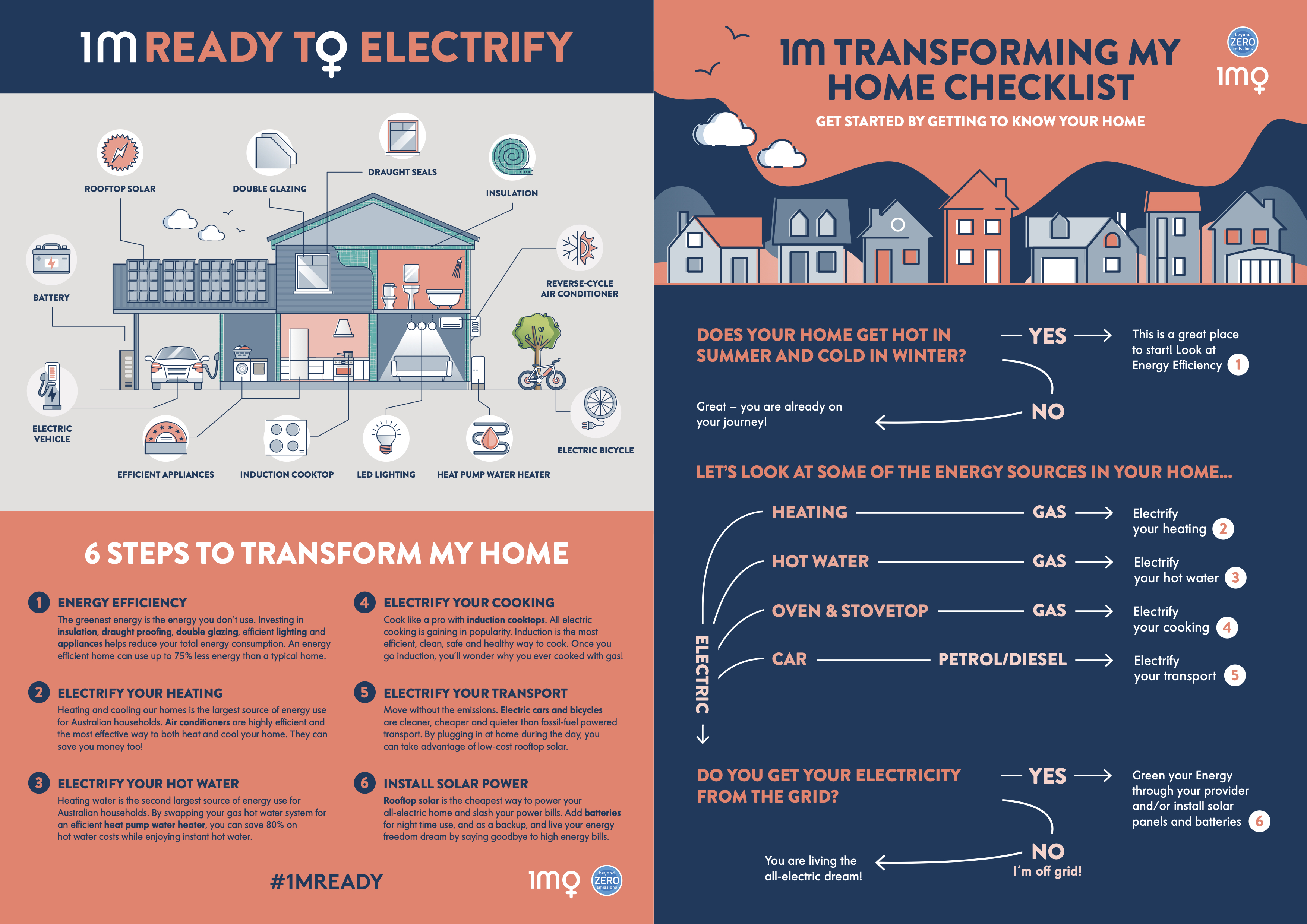
Optimizing Sustainable Living Through Efficient Home Power
As the world increasingly turns towards sustainable living, the role of efficient home power solutions becomes paramount. This article explores the significance of maximizing home power efficiency and how it contributes to a more eco-friendly and sustainable lifestyle.
Understanding the Importance of Home Power Efficiency
Efficient home power is not just about reducing energy bills; it’s a holistic approach to minimize environmental impact. By maximizing the efficiency of energy consumption, homeowners contribute to a sustainable future, reduce carbon footprints, and decrease dependence on traditional power sources.
The Role of Energy-Efficient Appliances
One of the key components of efficient home power is the use of energy-efficient appliances. Modern appliances, such as Energy Star-rated devices, consume less electricity while providing the same or even superior performance. Upgrading to energy-efficient appliances is a practical step towards a greener and more cost-effective household.
Smart Home Technologies for Energy Optimization
The integration of smart home technologies offers a dynamic way to optimize energy usage. Smart thermostats, lighting systems, and home automation allow homeowners to actively monitor and control energy consumption. These technologies enable a customized and efficient approach to managing home power, contributing to both comfort and sustainability.
Solar Power Integration for Clean Energy
Embracing solar power is a powerful step towards efficient home power. Solar panels on rooftops harness the abundant energy from the sun, converting it into clean electricity. This renewable source not only reduces reliance on the grid but also often results in long-term cost savings. Explore more about integrating solar power at Efficient Home Power for a comprehensive guide.
Energy Storage Solutions for Enhanced Resilience
Efficient home power goes hand in hand with energy storage solutions. Batteries and other storage systems store excess energy generated during peak sunlight hours, ensuring a continuous power supply, even during cloudy days or power outages. This resilience is crucial for homeowners looking to maintain consistent power for their households.
Benefits of Efficient Home Power on Energy Bills
One of the immediate advantages of optimizing home power is the positive impact on energy bills. Energy-efficient practices and technologies result in reduced electricity consumption, leading to lower monthly bills. This not only benefits homeowners financially but also contributes to a collective effort in energy conservation.
Government Incentives for Energy Efficiency
Many governments recognize the importance of energy efficiency and offer incentives to encourage homeowners to adopt greener practices. These incentives may include tax credits, rebates, or favorable financing options for installing energy-efficient appliances, solar panels, and other sustainable home power solutions.
Educating for Sustainable Power Consumption
Education is a crucial aspect of promoting efficient home power. Homeowners benefit from understanding how their daily activities and choices impact energy consumption. Educational initiatives can empower individuals to make informed decisions, fostering a culture of sustainability within communities.
Balancing Comfort and Sustainability
Efficient home power solutions aim to strike a balance between comfort and sustainability. The goal is not to compromise on the quality of living but to enhance it through intelligent energy management. By adopting energy-efficient practices, homeowners can enjoy a comfortable lifestyle while contributing to a healthier planet.
Efficient Home Power: Paving the Way to Sustainable Living
In conclusion, efficient home power is a cornerstone of sustainable living. From solar power integration to smart home technologies, each step taken towards optimizing energy usage contributes to a greener future. Explore the possibilities of Efficient Home Power at SolarHelp.info and embark on a journey towards a more sustainable and eco-friendly lifestyle.
Sustainable Solar Living: Eco-Friendly Home Solutions

Sustainable Solar Living: Eco-Friendly Home Solutions
Living sustainably is not just a trend; it’s a responsible choice for the well-being of our planet. Explore the myriad eco-friendly solutions that make a sustainable solar home a reality, combining the power of solar energy with conscious living practices.
1. Harnessing Solar Power for Sustainable Living
At the core of a sustainable solar home is the harnessing of solar power. Solar panels on rooftops convert sunlight into electricity, providing a clean and renewable energy source. This sustainable energy option not only reduces dependence on traditional power sources but also contributes to a greener and more eco-friendly lifestyle.
2. Energy-Efficient Design and Construction
Building a sustainable solar home starts with the design and construction phase. Utilizing energy-efficient building materials and design principles ensures that the home is well-insulated and optimized for energy conservation. This approach minimizes environmental impact and lays the foundation for an energy-efficient living space.
3. Smart Home Technologies for Energy Optimization
Integrating smart home technologies enhances the efficiency of a sustainable solar home. Smart thermostats, lighting systems, and appliances can be programmed to operate at peak efficiency, minimizing energy waste. These technologies not only make life more convenient but also contribute to a more sustainable and eco-friendly home environment.
4. Sustainable Landscaping for a Green Oasis
A sustainable solar home extends beyond its walls to the surrounding landscape. Implementing sustainable landscaping practices involves choosing native plants, installing rain gardens, and using eco-friendly irrigation systems. This not only creates a green oasis but also contributes to biodiversity and water conservation.
5. Efficient Water Management and Conservation
Conserving water is a critical aspect of sustainable living. Sustainable solar homes incorporate efficient water management systems, such as rainwater harvesting and greywater reuse. These practices reduce reliance on traditional water sources and contribute to a more environmentally conscious household.
6. Recycling and Waste Reduction Strategies
A sustainable solar home adopts robust recycling and waste reduction strategies. Implementing a comprehensive recycling program and minimizing single-use plastics are crucial steps towards reducing the ecological footprint. Conscious waste management ensures that the home aligns with sustainable living principles.
7. Sustainable Solar Home and Community Engagement
Creating a sustainable solar home is not just an individual endeavor; it’s a community effort. Engaging with the local community to promote sustainable practices, such as community gardens or group solar initiatives, fosters a collective commitment to eco-friendly living. Shared resources and knowledge contribute to a more sustainable neighborhood.
8. Government Incentives for Solar Home Adoption
Governments worldwide recognize the importance of sustainable living and often provide incentives for solar home adoption. These incentives may include tax credits, grants, or subsidies for solar installations and energy-efficient upgrades. Taking advantage of these initiatives makes transitioning to a sustainable solar home more financially feasible.
9. The Economic Benefits of a Sustainable Solar Home
Beyond environmental advantages, a sustainable solar home offers economic benefits. Lower energy bills, increased property value, and potential incentives contribute to long-term financial savings. Investing in sustainable features pays off not only in terms of a reduced ecological footprint but also in economic resilience.
10. Sustainable Solar Home: A Blueprint for the Future
In conclusion, embracing a sustainable solar home is a meaningful step towards a greener and healthier future. By combining the power of solar energy with conscious living practices, individuals contribute to a more sustainable lifestyle. Explore the possibilities of Sustainable Solar Home at solarhelp.info and embark on a journey towards eco-friendly and energy-efficient living.
Greening Your Home: Eco-Conscious Energy Solutions
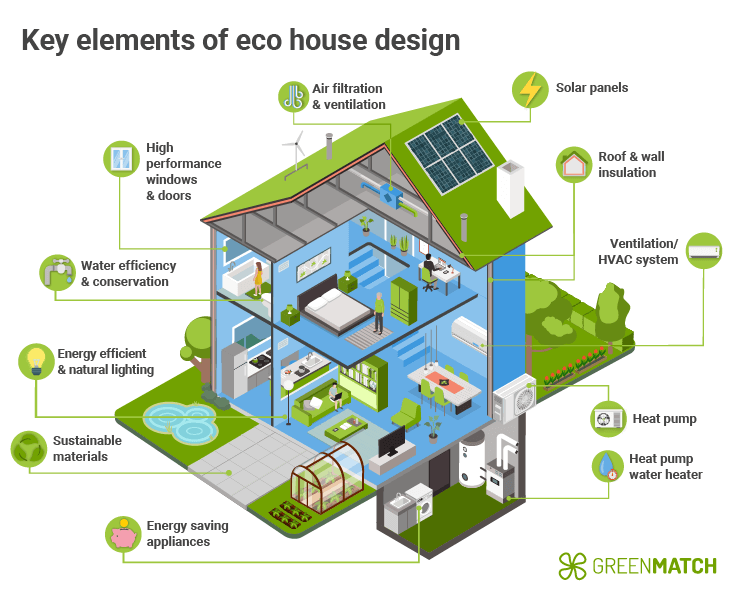
Greening Your Home: Exploring Eco-Conscious Energy Solutions
In the quest for a sustainable and eco-friendly lifestyle, adopting eco-conscious energy solutions for your home is a powerful and impactful choice. This article delves into the various facets of eco-conscious home energy, shedding light on how individuals can make a positive environmental difference while enhancing their home’s energy efficiency.
1. The Shift Towards Eco-Conscious Living: A Sustainable Choice
The growing awareness of environmental issues has prompted a significant shift towards eco-conscious living. Homeowners are increasingly recognizing the importance of adopting energy solutions that minimize their ecological footprint. This shift goes beyond personal benefits, contributing to a collective effort to address climate change and promote sustainable practices.
2. Energy Efficiency: The Cornerstone of Eco-Conscious Homes
At the heart of eco-conscious home energy is a focus on energy efficiency. This involves implementing measures to reduce energy consumption and waste. Upgrading insulation, investing in energy-efficient appliances, and sealing drafts are just a few strategies that contribute to creating an energy-efficient home, saving both resources and money in the long run.
3. Renewable Energy Integration: Harnessing the Power of Nature
A key aspect of eco-conscious home energy is the integration of renewable energy sources. Solar panels, wind turbines, and other renewable technologies allow homeowners to harness the power of nature to generate clean and sustainable energy. This shift away from traditional, non-renewable sources is a pivotal step towards a greener energy landscape.
Eco-Conscious Home Energy: A Transformative Approach
To explore how you can embrace eco-conscious home energy, visit Eco-Conscious Home Energy. This comprehensive resource provides insights and guidance on adopting sustainable practices, making informed choices, and contributing to a greener and healthier planet.
4. Smart Home Technologies: Enhancing Energy Management
The advent of smart home technologies plays a crucial role in optimizing energy usage. Smart thermostats, lighting systems, and appliances allow homeowners to monitor and control their energy consumption remotely. This level of control not only enhances convenience but also contributes to more efficient energy management.
5. Sustainable Building Materials: From Construction to Energy Efficiency
Eco-conscious home energy extends beyond energy consumption to the materials used in construction. Sustainable building materials, such as recycled or reclaimed wood, energy-efficient windows, and eco-friendly insulation, contribute to a home’s overall environmental impact. Choosing these materials supports a circular economy and reduces the ecological footprint of the building process.
6. Energy Audits: Tailoring Solutions to Your Home
Conducting an energy audit is a practical step towards achieving eco-conscious home energy. This assessment identifies areas where energy efficiency can be improved, offering tailored solutions for each home. From identifying insulation gaps to recommending appliance upgrades, an energy audit guides homeowners in making informed decisions.
7. Community Initiatives: Collective Impact for Sustainable Living
Participating in community initiatives amplifies the impact of eco-conscious home energy. Collaborative efforts, such as neighborhood solar co-ops or community-led energy efficiency programs, create a collective impact. By sharing knowledge and resources, communities can accelerate the transition towards sustainable living.
Conclusion: A Greener Tomorrow Starts at Home
In conclusion, greening your home with eco-conscious energy solutions is a meaningful and transformative endeavor. From energy efficiency measures and renewable energy integration to smart technologies and community initiatives, each step contributes to a more sustainable and eco-friendly lifestyle. By adopting eco-conscious practices, homeowners become pioneers in creating a greener tomorrow, starting right at home.
Solar Brilliance: Elevating Home Power with Panels
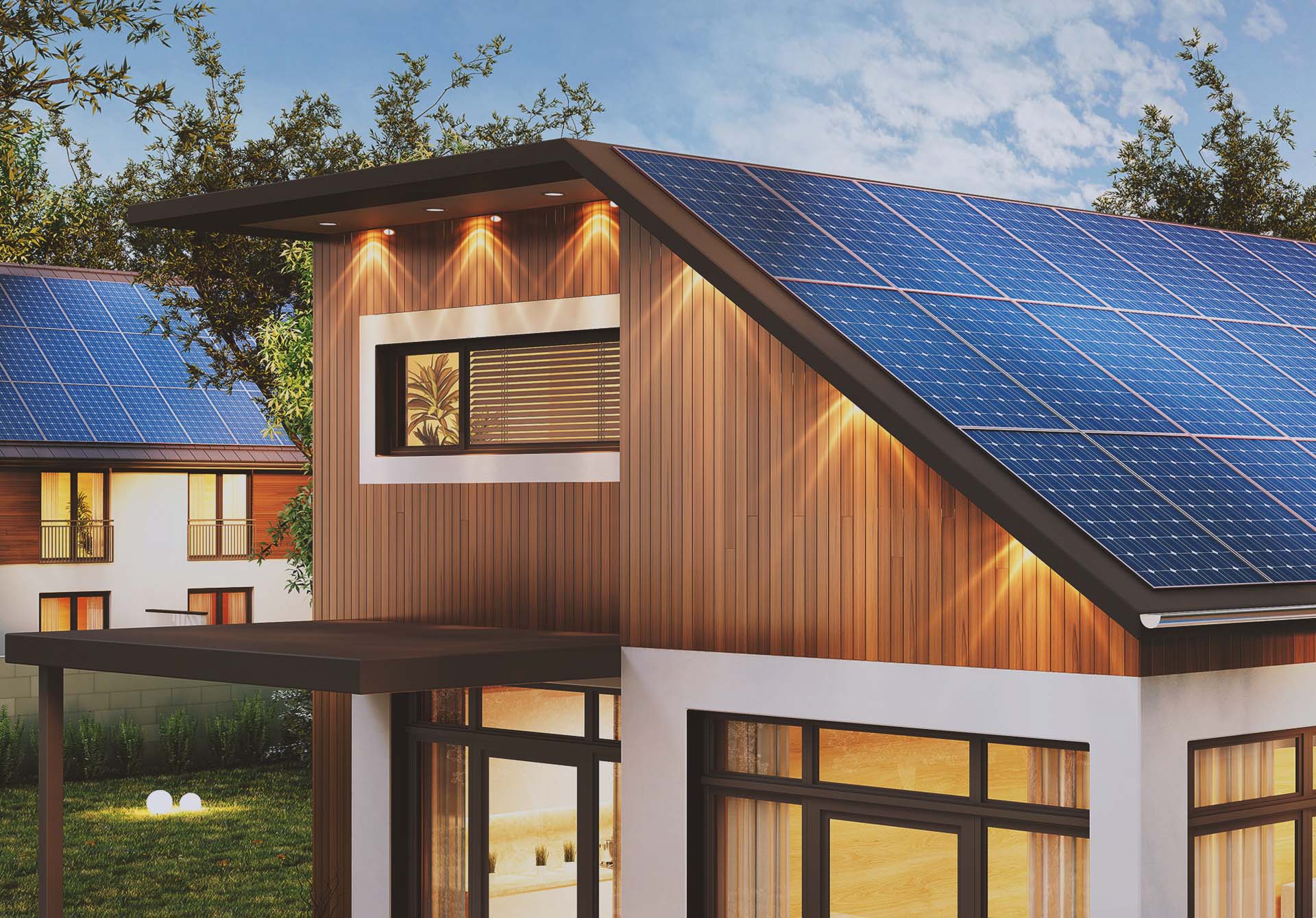
Elevating Home Power: The Brilliance of Residential Solar Panels
Residential solar panels have emerged as a transformative technology, offering homeowners a sustainable and efficient way to generate their own power. This article explores the various aspects of residential solar panels, shedding light on their benefits, installation considerations, and the positive impact they can have on both the environment and household finances.
The Promise of Renewable Power at Home
Residential solar panels harness the abundant energy from the sun, providing homeowners with a renewable and clean power source. This sustainable approach to energy generation reduces reliance on traditional electricity grids and fossil fuels, contributing to environmental preservation and combating climate change.
Financial Advantages of Residential Solar
One of the primary attractions of residential solar panels lies in the financial benefits they offer. While the initial investment in solar panel installation may seem significant, homeowners often experience substantial long-term savings on their energy bills. Additionally, many governments and utilities provide incentives, rebates, and tax credits to further enhance the economic viability of solar installations.
Installation Considerations for Homeowners
The installation of residential solar panels involves careful consideration of various factors. These include assessing the home’s solar potential, determining the optimal placement and angle for panels, and evaluating the available roof space. Working with professional installers ensures that the system is customized to the specific needs and conditions of the residence.
Grid-Tied vs. Off-Grid Systems
Homeowners can choose between grid-tied and off-grid solar systems. Grid-tied systems are connected to the local electricity grid, allowing excess energy to be fed back into the grid in exchange for credits. Off-grid systems, on the other hand, operate independently and require energy storage solutions, such as batteries, to provide power during periods of low sunlight.
Energy Storage Solutions for Continuous Power
In situations where homeowners seek independence from the grid or want to ensure continuous power during outages, incorporating energy storage solutions becomes crucial. Solar batteries store excess energy generated during sunny periods, making it available for use during cloudy days or at night. This enhances the reliability and self-sufficiency of residential solar systems.
Environmental Impact and Sustainability
Beyond financial considerations, residential solar panels significantly reduce the environmental impact of home energy consumption. By generating clean energy and reducing reliance on fossil fuels, homeowners contribute to lower carbon emissions and help build a more sustainable and ecologically conscious future.
Technological Advancements and Smart Homes
Technological advancements in solar panel technology continue to enhance efficiency and performance. Integrated smart home technologies allow homeowners to monitor and control their solar systems remotely. This not only maximizes energy production but also provides insights into consumption patterns, fostering a more conscious approach to energy use.
Community and Peer Influence
The adoption of residential solar panels often extends beyond individual households. Communities that embrace solar power create a collective impact, influencing neighbors and fostering a culture of sustainability. Peer influence and community-led initiatives play a vital role in accelerating the transition to renewable energy on a broader scale.
Educational Initiatives for Informed Choices
Educational initiatives are instrumental in empowering homeowners to make informed choices about residential solar panels. Providing accessible information about the benefits, installation process, and financial aspects of solar power encourages more individuals to explore this sustainable and cost-effective energy solution.
Empowering Homes with Solar Brilliance
In conclusion, residential solar panels represent a transformative and empowering technology that allows homeowners to take control of their energy production. From financial savings to environmental stewardship, the brilliance of solar power is illuminating homes across the globe. Explore more about Residential Solar Panels at SolarHelp.info for a comprehensive guide on elevating home power through sustainable solutions.
Clean Energy Home: Sustainable Living Hub
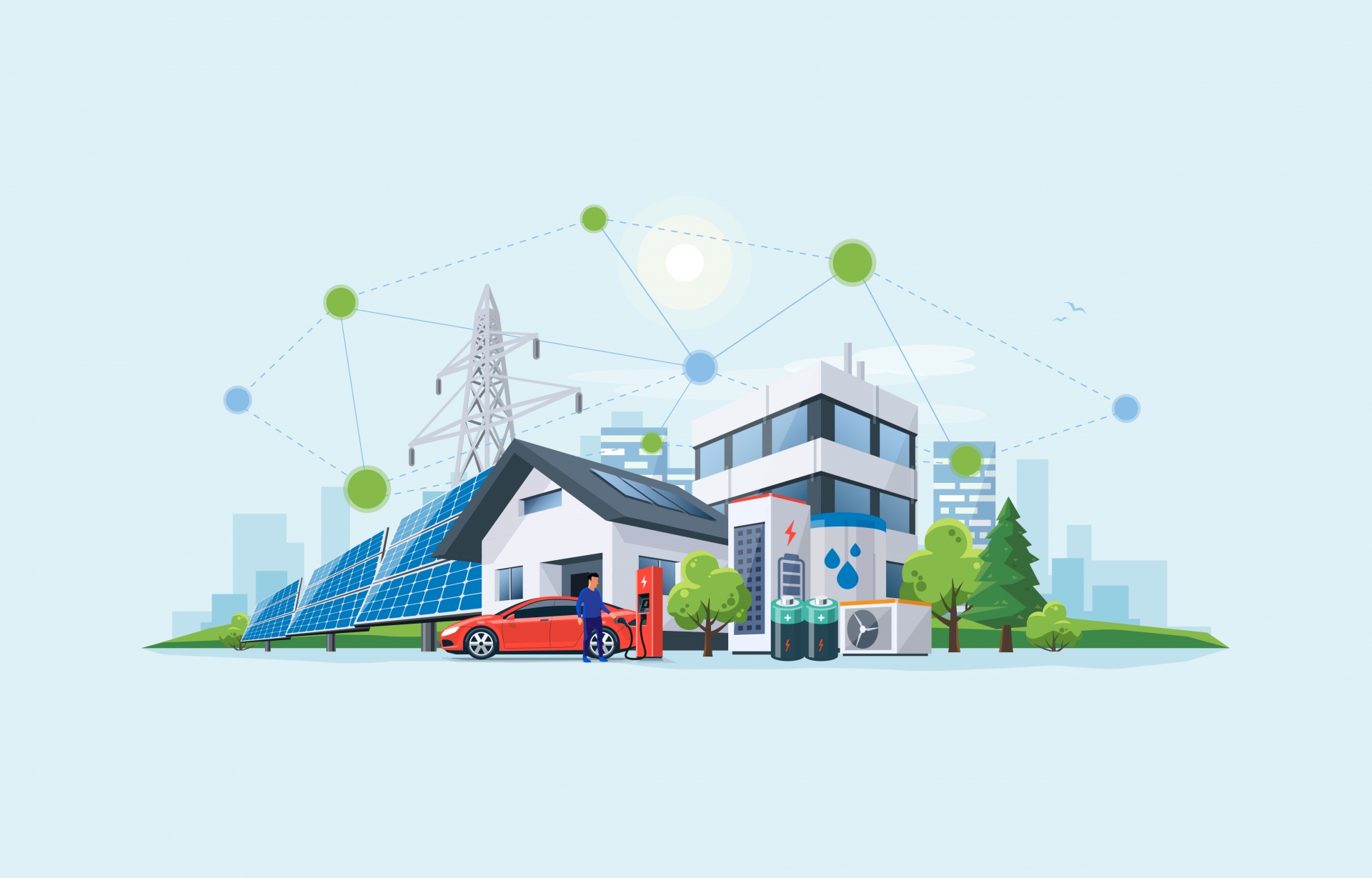
Embracing Sustainable Living: The Clean Energy Home
As the world pivots towards a more sustainable future, the concept of a Clean Energy Home takes center stage. This innovative approach not only benefits the environment but also transforms our living spaces into hubs of renewable energy, setting the stage for a greener and more responsible lifestyle.
Harnessing Solar Power for Clean Energy Living
At the heart of a Clean Energy Home is the integration of solar power. Solar panels, strategically placed on rooftops or integrated into the architecture, capture sunlight and convert it into electricity. This clean and renewable energy source significantly reduces reliance on traditional power grids, making each home a small-scale power generation unit.
Energy Efficiency: The Foundation of Clean Living
Creating a Clean Energy Home goes beyond just generating power; it involves a holistic approach to energy efficiency. Energy-efficient appliances, smart thermostats, and well-insulated spaces contribute to minimizing energy consumption. This dual strategy of generating clean energy and optimizing usage creates a harmonious balance for sustainable living.
The Economic Advantages of Clean Energy Homes
While the initial investment in transitioning to a Clean Energy Home may seem substantial, the long-term economic advantages are noteworthy. Reduced utility bills, government incentives, and the potential to sell excess energy back to the grid contribute to a favorable return on investment. Clean energy becomes not just an environmental choice but a financially prudent one.
Reducing Carbon Footprints: A Personal Commitment
By adopting a Clean Energy Home lifestyle, individuals actively contribute to reducing carbon footprints. Traditional energy sources, often reliant on fossil fuels, release harmful greenhouse gases into the atmosphere. Transitioning to clean energy significantly mitigates these emissions, aligning personal choices with global environmental goals.
Smart Technologies for Clean Living
The evolution of smart technologies plays a crucial role in Clean Energy Homes. Smart home systems allow residents to monitor and control energy usage, optimizing efficiency. From automated lighting systems to intelligent climate control, these technologies enhance the overall sustainability of a Clean Energy Home.
Community Impact: Clean Energy Homes Beyond Individual Spaces
The impact of Clean Energy Homes extends beyond individual households. When entire communities embrace sustainable living, the collective effect becomes substantial. Shared resources, community solar projects, and collaborative efforts contribute to a network of Clean Energy Homes, creating a positive ripple effect in neighborhoods and towns.
Educational Initiatives for Clean Energy Adoption
Educational outreach is pivotal in encouraging the widespread adoption of Clean Energy Homes. Initiatives that raise awareness about the benefits, dispel myths, and provide practical guidance empower individuals to make informed choices. Educational programs at schools, community centers, and online platforms contribute to a more environmentally conscious society.
Architectural Integration of Clean Energy Solutions
Innovations in architecture play a vital role in the aesthetic integration of clean energy solutions. Designing homes with solar panels as integral elements rather than add-ons enhances the visual appeal. Architects and builders are increasingly incorporating sustainability into their designs, making Clean Energy Homes not only environmentally friendly but also stylish and modern.
Embarking on the Clean Energy Home Journey
Ready to transform your living space into a Clean Energy Home? Visit Clean Energy Home for comprehensive resources, guides, and insights. The journey towards sustainable living starts with informed choices and small steps, and a Clean Energy Home is a powerful stride towards a brighter, cleaner future.
Efficiency Unleashed: Energy Savings for Your Future

Efficiency Unleashed: Energy Savings for Your Future
Unlocking the benefits of energy savings is not just about reducing bills; it’s a step towards sustainability and a brighter future. This article delves into the various advantages of prioritizing energy efficiency in your home.
Understanding the Impact of Energy Efficiency
Energy efficiency goes beyond the simple act of reducing energy consumption; it’s about understanding the broader impact on both the environment and your personal finances. By comprehending the intricacies of energy efficiency, homeowners can make informed choices that lead to positive outcomes.
Cost Savings and Financial Well-Being
One of the most immediate benefits of energy savings is the positive impact on your wallet. Energy-efficient practices, such as using LED bulbs, upgrading to energy-efficient appliances, and proper insulation, contribute to lower utility bills. This cost savings not only benefits your immediate budget but also enhances your long-term financial well-being.
Environmental Stewardship through Reduced Consumption
Prioritizing energy savings aligns with environmental stewardship. By consuming less energy, individuals contribute to the reduction of greenhouse gas emissions and the overall carbon footprint. This environmentally conscious approach plays a crucial role in fostering a sustainable and ecologically balanced future.
The Role of Energy-Efficient Appliances and Technologies
Investing in energy-efficient appliances and technologies is a cornerstone of achieving significant energy savings. From Energy Star-rated appliances to smart home systems that optimize energy usage, incorporating these technologies into your home enhances efficiency and contributes to a more sustainable lifestyle.
Renewable Energy Integration for Sustainable Living
Integrating renewable energy sources, such as solar panels, takes energy savings to the next level. By generating clean and sustainable energy on-site, homeowners not only reduce their reliance on conventional power grids but also contribute to the global shift towards renewable and environmentally friendly energy solutions.
Government Incentives and Rebates for Energy Efficiency
Governments often incentivize energy-efficient practices through rebates and incentives. From tax credits for solar installations to cash rebates for energy-efficient upgrades, these programs make adopting energy-saving measures more accessible. Exploring and taking advantage of such incentives adds an extra layer of benefit to your energy-saving initiatives.
Creating Comfortable and Efficient Living Spaces
Energy savings also translate into creating comfortable living spaces. Proper insulation, well-sealed windows, and efficient HVAC systems contribute to maintaining a comfortable indoor environment. This dual benefit of energy efficiency—comfort and savings—enhances the overall quality of life at home.
Educational Initiatives for Informed Choices
Empowering individuals with knowledge is a key aspect of promoting energy savings. Educational initiatives, whether through community programs or online resources, inform homeowners about energy-efficient practices and the latest advancements in green technologies. Informed choices lead to more effective energy-saving strategies.
Smart Home Technologies for Real-Time Monitoring
Advancements in smart home technologies offer real-time monitoring of energy usage. Smart thermostats, energy monitoring systems, and home automation tools provide homeowners with insights into their energy consumption patterns. This awareness enables more precise control and further enhances energy-saving efforts.
Energy Savings Benefit: A Link to a Sustainable Future
Ready to embark on the journey of energy savings for a sustainable future? Explore the benefits and possibilities at Energy Savings Benefit. Discover practical tips and insights on how you can contribute to a more energy-efficient and environmentally friendly lifestyle.
In conclusion, energy savings go beyond mere reduction in utility bills; they are integral to creating a sustainable and eco-friendly future. From financial well-being to environmental stewardship, the benefits of prioritizing energy efficiency in your home are multifaceted. By adopting energy-saving practices and embracing green technologies, individuals play a vital role in shaping a more sustainable world for generations to come.
Eco-Friendly Home Solution: Sustainably Transforming Living Spaces

Transforming Living Spaces Sustainably: The Eco-Friendly Home Solution
In the pursuit of a greener and more sustainable lifestyle, the concept of an Eco-Friendly Home Solution has emerged as a guiding principle. This article delves into various aspects of creating an eco-friendly home, exploring innovative solutions that harmonize with the environment while enhancing the overall quality of life.
Green Building Materials and Design
The foundation of an eco-friendly home begins with the choice of building materials and design principles. Opting for green building materials, such as recycled wood, reclaimed materials, and low-impact finishes, reduces the environmental footprint of construction. Sustainable design focuses on maximizing natural light, promoting energy efficiency, and integrating the home seamlessly into its surroundings.
Energy-Efficient Appliances and Lighting
An essential aspect of an eco-friendly home is the integration of energy-efficient appliances and lighting. Energy Star-rated appliances consume less energy, contributing to reduced electricity usage. LED lighting, known for its energy efficiency and longevity, illuminates spaces while minimizing environmental impact. These choices not only conserve resources but also lead to long-term cost savings.
Renewable Energy Adoption
Embracing renewable energy sources is a key component of an Eco-Friendly Home Solution. Solar panels on rooftops or in the surrounding landscape harness the power of the sun to generate clean and sustainable energy. This renewable energy adoption not only reduces dependence on traditional grid systems but also contributes to the fight against climate change.
Water Conservation Practices
Creating an eco-friendly home involves mindful water conservation practices. Installing low-flow faucets, water-efficient toilets, and drip irrigation systems helps minimize water consumption. Additionally, capturing rainwater for non-potable uses, such as watering plants, further reduces reliance on municipal water sources. These practices contribute to both environmental sustainability and reduced utility bills.
Waste Reduction and Recycling Initiatives
An eco-friendly home prioritizes waste reduction and recycling initiatives. Implementing a comprehensive recycling system for household waste, composting organic materials, and reducing single-use plastics are effective strategies. The goal is to minimize the amount of waste sent to landfills, promoting a circular economy that values resource conservation.
Natural and Non-Toxic Materials in Interiors
The interior spaces of an eco-friendly home are adorned with natural and non-toxic materials. From furniture made with sustainably sourced wood to paints and finishes that emit fewer harmful chemicals, these choices contribute to a healthier indoor environment. Natural ventilation strategies also enhance air quality, creating a space that prioritizes well-being.
Green Landscaping Practices
Extending eco-friendly principles to the outdoor spaces, green landscaping practices play a crucial role. Planting native species, creating biodiverse gardens, and implementing water-efficient irrigation systems contribute to a sustainable landscape. Eco-friendly landscaping not only enhances the aesthetic appeal of the home but also supports local ecosystems.
Smart Home Technologies for Efficiency
Integrating smart home technologies enhances the overall efficiency of an eco-friendly home. Smart thermostats, automated lighting systems, and home energy management platforms optimize energy consumption. These technologies learn user habits, adapt to preferences, and contribute to an eco-conscious and comfortable living environment.
Education and Awareness for Sustainable Living
Fostering an eco-friendly home is not just about physical changes; it involves cultivating a mindset of sustainable living. Education and awareness initiatives within the household, such as workshops on eco-friendly practices or discussions about environmental impact, create a culture of consciousness. This awareness extends beyond the home, influencing lifestyle choices and encouraging sustainable practices in the community.
Access to Eco-Friendly Resources and Solutions
Creating an eco-friendly home is more accessible than ever, thanks to a growing market of eco-friendly resources and solutions. From sustainable home improvement products to renewable energy systems, homeowners have a diverse array of options. This accessibility empowers individuals to make informed choices and gradually transition towards a more eco-friendly lifestyle.
Explore the Eco-Friendly Home Solution Today
Ready to embark on the journey of transforming your living space into an eco-friendly haven? Explore the possibilities and learn more about the Eco-Friendly Home Solution by visiting Eco-Friendly Home Solution. Embrace sustainable living practices, make informed choices, and contribute to a greener and more eco-conscious future.
In conclusion, the Eco-Friendly Home Solution is not just a set of practices; it represents a holistic approach to living in harmony with the environment. From construction materials to daily lifestyle choices, every decision counts in creating a home that reflects a commitment to sustainability. By adopting eco-friendly practices, homeowners not only enhance the health of their living spaces but also contribute to a more sustainable and resilient planet.
Flow Revival: Clearing Blockages for a Spacious Home
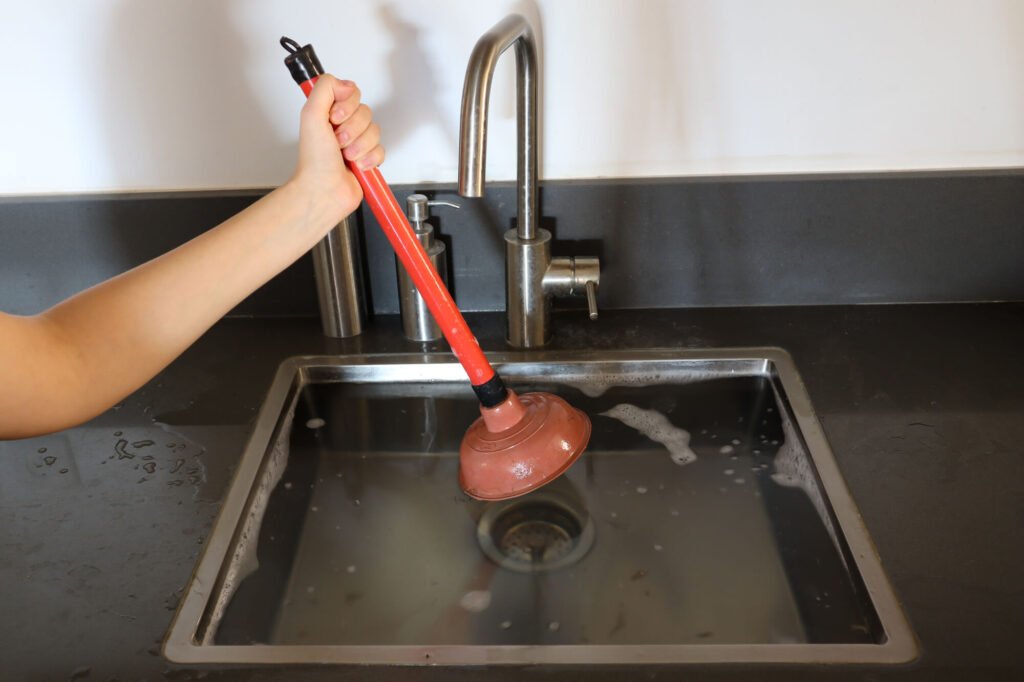
Flow Revival: Clearing Blockages for a Spacious Home
Clearing blockages in your home is essential for maintaining a comfortable and functional living space. This article explores effective strategies and tips to revive the flow within your home and ensure a spacious and stress-free environment.
Identifying Common Home Blockages
The first step in clearing blockages is identifying common culprits. Blocked drains, clogged pipes, and HVAC obstructions are frequent issues. Understanding the specific nature of the blockage helps in choosing the right approach for effective resolution.
DIY Methods for Unblock Drains and Pipes
For minor blockages, DIY methods can be highly effective. Using a mixture of baking soda and vinegar, utilizing a plunger, or employing a drain snake are common DIY techniques. These methods help break down debris and clear obstructions, restoring the smooth flow of water.
Professional Plumbing Services for Stubborn Blockages
When DIY methods fall short, it’s time to consider professional plumbing services. Plumbers have the expertise and specialized tools to tackle stubborn blockages. Hydro-jetting, camera inspections, and pipe relining are examples of advanced techniques that professionals use to clear blockages effectively.
Preventive Measures to Avoid Future Blockages
Preventing blockages is as crucial as clearing existing ones. Implementing preventive measures, such as using drain screens, avoiding the disposal of grease and large debris down sinks, and regular pipe maintenance, helps in avoiding future blockages. A proactive approach is key to a blockage-free home.
Clearing HVAC Ducts for Improved Airflow
Home blockages aren’t limited to water-related issues; HVAC ducts can also pose challenges. Accumulation of dust, debris, and mold can obstruct airflow, affecting the efficiency of your heating and cooling systems. Regular duct cleaning ensures optimal airflow and a healthier indoor environment.
Organizational Strategies for Clutter-Free Living
Sometimes, the blockages in our homes are not physical but organizational. Clutter and disorganization can create a sense of blockage, making spaces feel cramped. Implementing organizational strategies, such as decluttering, optimizing storage, and creating functional spaces, contributes to a more open and spacious home.
Landscaping Solutions for Outdoor Drainage
Outdoor blockages, such as clogged gutters or poorly draining landscapes, can impact the overall functionality of your home. Proper landscaping, including grading to promote water drainage and regular gutter cleaning, prevents outdoor blockages and safeguards your home’s foundation.
Educational Resources for DIY Mastery
Empowering homeowners with knowledge about blockage prevention and resolution is essential. Educational resources, including online guides, workshops, and community outreach programs, provide insights into effective strategies and DIY mastery. Informed homeowners can take proactive steps to maintain a blockage-free home.
Smart Home Technologies for Blockage Monitoring
Advancements in smart home technologies offer innovative solutions for blockage monitoring. Smart sensors and monitoring devices can detect anomalies in water flow, potential pipe obstructions, or issues with HVAC systems. Integrating these technologies into your home enhances the ability to monitor and address blockages promptly.
Clear Home Blockages: A Link to Stress-Free Living
Ready to experience a stress-free and spacious home? Explore effective strategies and tips at Clear Home Blockages. Discover how clearing blockages contributes to a more comfortable and functional living space, promoting overall well-being.
In conclusion, clearing blockages in your home is a multifaceted effort that involves identifying, resolving, and preventing issues. From DIY methods to professional services and proactive preventive measures, a comprehensive approach ensures a stress-free and spacious living environment. The link between flow revival and stress-free living guides homeowners toward a more comfortable and harmonious home.
Utility Bill Savings: Embracing the Financial Benefits
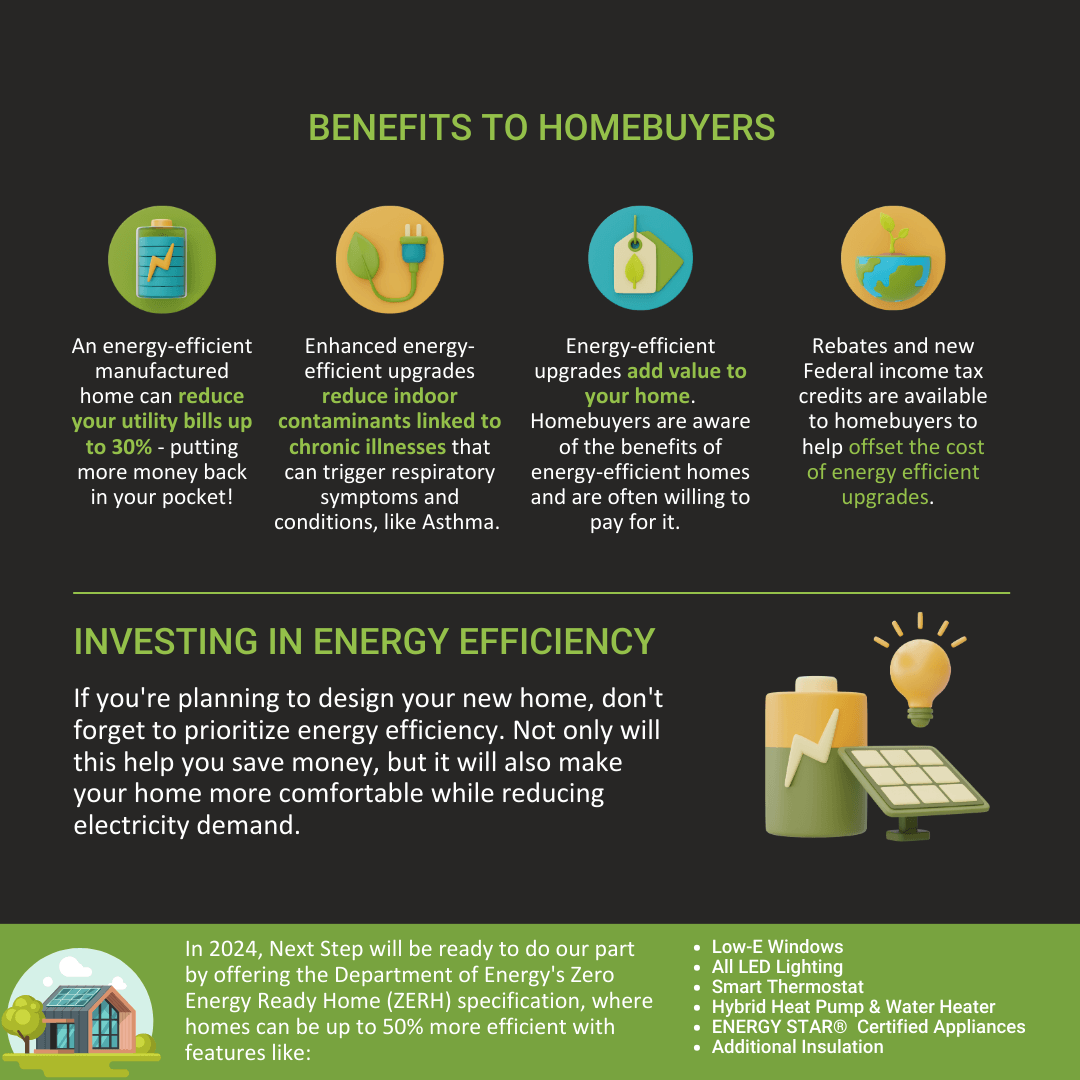
Unveiling the Financial Advantage: Reduced Utility Bills Benefit
Embracing a lifestyle that incorporates energy-efficient practices and renewable sources not only benefits the environment but also contributes significantly to reduced utility bills. This article explores the multifaceted advantages of adopting energy-efficient technologies and making mindful choices, ultimately leading to substantial savings on monthly utility expenses.
Understanding the Dynamics of Utility Bills
Before delving into the strategies for reducing utility bills, it’s essential to understand the dynamics of what contributes to these expenses. Utilities typically include electricity, water, gas, and sometimes additional services like trash removal. Each of these components can be optimized for efficiency, offering opportunities for homeowners to curtail costs.
Harnessing Solar Power for Electricity Savings
One of the most impactful ways to achieve reduced utility bills is by harnessing solar power for electricity needs. Solar panels, installed on rooftops, capture sunlight and convert it into electricity. By adopting solar energy, homeowners can significantly offset their reliance on traditional utility-supplied electricity, resulting in substantial savings over time.
Energy-Efficient Appliances and Lighting
Investing in energy-efficient appliances and lighting solutions is a proactive step towards reducing utility bills. Energy Star-rated appliances consume less energy, contributing to lower electricity bills. Similarly, switching to LED or CFL light bulbs not only reduces energy consumption but also extends the lifespan of lighting fixtures, reducing replacement costs.
Smart Home Technologies for Efficiency
The integration of smart home technologies enhances energy efficiency and reduces utility expenses. Smart thermostats, lighting systems, and energy monitoring devices allow homeowners to optimize energy usage. Programmable thermostats, for example, enable precise control over heating and cooling, leading to noticeable savings on heating and air conditioning costs.
Water Conservation for Lower Water Bills
Reducing water consumption is a pivotal aspect of realizing lower utility bills. Simple practices, such as fixing leaks, installing low-flow fixtures, and using water-efficient appliances, contribute to significant water savings. Conserving water not only benefits the environment but also results in tangible reductions in monthly water bills.
Sustainable Landscaping for Water and Energy Savings
Sustainable landscaping practices go hand in hand with the goal of reduced utility bills. Planting native, drought-resistant plants minimizes the need for excessive watering. Additionally, strategically placed trees and shrubs can provide natural shade, reducing the demand for air conditioning and further contributing to energy savings.
Insulation and Energy-Efficient Windows
A well-insulated home with energy-efficient windows is more resistant to temperature fluctuations, leading to reduced reliance on heating and cooling systems. Adequate insulation in walls, attics, and floors, coupled with windows designed to minimize heat transfer, creates an energy-efficient envelope, resulting in lower utility bills.
Government Incentives and Rebates
Government incentives and rebates play a significant role in promoting energy-efficient practices. Many governments offer financial incentives for adopting renewable energy solutions, upgrading to energy-efficient appliances, and making home improvements that enhance overall energy efficiency. Exploring available incentives can further amplify the financial benefits of reducing utility bills.
The Long-Term Impact on Household Budgets
While some energy-efficient upgrades may involve initial costs, the long-term impact on household budgets is noteworthy. Reduced utility bills translate into ongoing savings, contributing to increased disposable income for homeowners. Over the years, the financial benefits of adopting sustainable and energy-efficient practices continue to accumulate.
Empowering Homeowners for Financial Resilience
In conclusion, the reduced utility bills benefit goes beyond immediate cost savings; it empowers homeowners for financial resilience. Embracing energy-efficient technologies, harnessing renewable energy, and making mindful choices in daily practices contribute not only to a greener planet but also to financial well-being. To explore more about the reduced utility bills benefit and practical steps for implementation, visit Reduced Utility Bills Benefit for valuable insights and resources. Join the journey towards financial savings and environmental stewardship, making a positive impact on both your home and the world.
